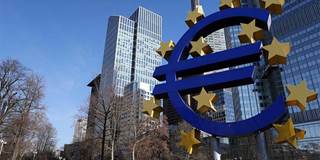Political systems prove their worth by how quickly they put an end to their officials’ serial, mutually reinforcing, policy mistakes. Judged by this standard, the eurozone, comprising 19 well-established democracies, lags behind the largest non-democratic economy in the world.
ATHENS – Like Macbeth, policymakers tend to commit new sins to cover up their old misdemeanors. And political systems prove their worth by how quickly they put an end to their officials’ serial, mutually reinforcing, policy mistakes. Judged by this standard, the eurozone, comprising 19 established democracies, lags behind the largest non-democratic economy in the world.
Following the onset of the recession that followed the 2008 global financial crisis, China’s policymakers spent seven years replacing waning demand for their country’s net exports with a homegrown investment bubble, inflated by local governments’ aggressive land sales. And when the moment of reckoning came this summer, China’s leaders spent $200 billion of hard-earned foreign reserves to play King Canute trying to hold back the tide of a stock-market rout.
Compared to the European Union, however, the Chinese government’s effort to correct its errors – by eventually allowing interest rates and stock values to slide – seems like a paragon of speed and efficiency. Indeed, the failed Greek “fiscal consolidation and reform program,” and the way the EU’s leaders have clung to it despite five years of evidence that the program cannot possibly succeed, is symptomatic of a broader European governance failure, one with deep historical roots.

ATHENS – Like Macbeth, policymakers tend to commit new sins to cover up their old misdemeanors. And political systems prove their worth by how quickly they put an end to their officials’ serial, mutually reinforcing, policy mistakes. Judged by this standard, the eurozone, comprising 19 established democracies, lags behind the largest non-democratic economy in the world.
Following the onset of the recession that followed the 2008 global financial crisis, China’s policymakers spent seven years replacing waning demand for their country’s net exports with a homegrown investment bubble, inflated by local governments’ aggressive land sales. And when the moment of reckoning came this summer, China’s leaders spent $200 billion of hard-earned foreign reserves to play King Canute trying to hold back the tide of a stock-market rout.
Compared to the European Union, however, the Chinese government’s effort to correct its errors – by eventually allowing interest rates and stock values to slide – seems like a paragon of speed and efficiency. Indeed, the failed Greek “fiscal consolidation and reform program,” and the way the EU’s leaders have clung to it despite five years of evidence that the program cannot possibly succeed, is symptomatic of a broader European governance failure, one with deep historical roots.